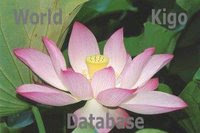:::::::::::::::::::::::::::::::::::::::::::::::::::::::::::::::::::::::::::::::::::::::::::::::::::::
Fine weather, fine day (hare, -biyori)
***** Location: Japan
***** Season: Various, see below
***** Category: Heaven
*****************************
Explanation
A fine day can be enjoyed in all seasons.
There are two words used most often in Japanese.
hare, ..bare 晴れ fine weather
sunny weather, clear skies
..... sei 晴
..... hiyori, ..biyori 日和 fine day
The word hiyori/ ..biyori is often used together with other words to show a fine day suitable for an activity or situation.
hare no hi 晴れの日 is a term for a festival day or a day of celebration.
Let us look at the kigo with these words.
:::::::::::::::::::::::::::::::::::::::::::::::::::::::::::::::::::::::::::::::::::::::::::::::::::::
kigo for spring
. harubiyori 春日和 (はるびより) fine day in spring
. konome bare 木の芽晴(このめばれ)
fine weather on tree buds
. takobiyori 凧日和(たこびより) fine day for kite flying
:::::::::::::::::::::::::::::::::::::::::::::::::::::::::::::::::::::::::::::::::::::::::::::::::::::
kigo for summer
. tsuyu harema 梅雨晴れ間
spell of fine weather during the rainy season
..... tsuyubare 梅雨晴、tsuyu no hare 梅雨の晴
..... tsuyu haru 梅雨晴る
lull in the rain of the rainy season
break in the rainy season
. . . CLICK here for Photos !
satsukibare 五月晴 さつきばれ fine weather in the fifth lunar month
(the period of the rainy season)
.................................................................................
. yuudachibare, yuudachi-bare 夕立晴
fine weather after a sudden shower
:::::::::::::::::::::::::::::::::::::::::::::::::::::::::::::::::::::::::::::::::::::::::::::::::::::
kigo for autumn
. akibare 秋晴 (あきばれ) fine weather in autumn
akibiyori 秋日和(あきびより)fine day in autumn
aki haruru 秋晴るる(あきはるる) weather is fine in autumn
. nowakibare, nowaki bare 野分晴(のわきばれ)
fine weather after a storm / typhoon
. haze biyori 鯊日和(はぜびより) sunny day for fishing dace
. mozu biyori 鵙日和(もずびより) fine day for the shrike
..... mozu no hare 鵙の晴(もずのはれ)
. kikubiyori 菊日和
fine weather to enjoy chrysanthemums
:::::::::::::::::::::::::::::::::::::::::::::::::::::::::::::::::::::::::::::::::::::::::::::::::::::
kigo for winter
fuyubare 冬晴 (ふゆばれ) fine weather in winter
..... fuyubiyori 冬日和(ふゆびより)fine day in winter
fuyu haruru 冬晴るる(ふゆはるる)it is fine weather in winter

. fuyu urara 冬麗(ふゆうらら)
bright and clear winter weather
kigo related to URARA and NODOKA, also used for bright, clear and fine weather.
. yukibare 雪晴 fine weather after a snowfall
..... miyukibare 深雪晴 (みゆきばれ)
. shimobare 霜晴 clear and frosty
..... shimobiyori 霜日和(しもびより)clear, frosty day
. itebare 凍晴 fine weather but freezing
. koharubiyori 小春日和 Indian summer
fine day in early winter
. shionbiyori, shion biyori 四温日和(しおんびより) fine day of shion four warm days
. susubiyori, susu biyori 煤日和(すすびより)
bright day for cleaning
cleaning the homes before the New Year celebrations
.SAIJIKI ... HEAVEN
Kigo for Winter
:::::::::::::::::::::::::::::::::::::::::::::::::::::::::::::::::::::::::::::::::::::::::::::::::::::
kigo for the New Year
. hatsubare 初晴 (はつばれ) first fine day
. Hare no Gozen 晴の御膳 Official Lunch Reception
Hare no Omono 晴御膳 はれのおもの
In the Phoenix Hall of the Imperial Palace.
*****************************
Worldwide use
German
schöner Tag; Tag mit schönem Wetter; Tag mit klarem Wetter
*****************************
Things found on the way
. "one rain, one shine"
一雨一晴 (いちういっせい ) ichi-u issei
Numbers used in Haiku
:::::::::::::::::::::::::::::::::::::::::::::::::::::::::::::::::::::::::::::::::::::::::::::::::::::
The prefecture Okayama in called
Hare no kuni Okayama 晴れの国岡山

because it has the most sunshine in all of Japan, leading to a lot of good food from the fresh vegetables and fruit from the area.
:::::::::::::::::::::::::::::::::::::::::::::::::::::::::::::::::::::::::::::::::::::::::::::::::::::

. WASHOKU
haruru no shi 晴るるの詩 ricecake "poem of a fine day"
made with special rice from Yamaguchi, koshihikari and yamatowashi
from 美東町. a kind of puffed rice sweets on senbei or white chocolate
:::::::::::::::::::::::::::::::::::::::::::::::::::::::::::::::::::::::::::::::::::::::::::::::::::::
仏滅の晴天を呼ぶむつ五郎
butsumetsu no seiten o yobu mutsugoroo
bringing fine weather
for Buddha's death day -
Mutsugoro
Nagajima Tenseki 永島転石
. mud skipper (mutsugoro)
and food from Saga prefecture
butsumetsu 仏滅 Butsumetsu Day, one of the six days in the Asian calendar
Symbolizes the day Buddha died. Considered the most unlucky day. Weddings are best avoided. Some Shinto shrines close their offices on this day.
. rokuyō (六曜) the six days .
*****************************
HAIKU
夏山やよく雲かゝりよく晴るゝ
natsuyama ya yoku kumo kakari yoku haruru
summer mountains -
sometimes in the clouds
sometimes in sunshine
Takahama Kyoshi 高浜 虚子
. Mountains and Kigo
:::::::::::::::::::::::::::::::::::::::::::::::::::::::::::::::::::::::::::::::::::::::::::::::::::::
冬晴れや鯖青々と飯の上
fuyubare ya saba aoao to ita no ue
fine winter day -
the mackerels are so blue
on the chopping board
Sotatsu 宗達 (his manga alias)
. WASHOKU
Razuweru Hosoki ラズウェル細木 Rozwell Hosoki
alias Sotatsu 宗達
:::::::::::::::::::::::::::::::::::::::::::::::::::::::::::::::::::::::::::::::::::::::::::::::::::::
澄みきつて独楽の廻れり冬日和
sumikitte koma no mawareri fuyu biyori
such clearness
as the top spins around -
fine winter day
Tanaka Fuyuji 田中冬二 (1894 - 1980)
. Spinning topt (koma) and Haiku
:::::::::::::::::::::::::::::::::::::::::::::::::::::::::::::::::::::::::::::::::::::::::::::::::::::
うらゝ晴れ初富士近し日本橋
urara hare hatsu Fuji chikashi Nihonbashi
such fine weather -
first view of Mount Fuji
so close to Nihonbashi bridge
Mitake Koken 三宅孤軒 (1933 - )
. Nihonbashi and Haiku
:::::::::::::::::::::::::::::::::::::::::::::::::::::::::::::::::::::::::::::::::::::::::::::::::::::
焼きたての パンの匂いや! 梅雨晴れ間
yakitate no pan no nioi ya tsuyu harema
the smell of
freshly baked bread -
a break in the rainy season
. Smell, Fragrance and Haiku
tsuyu harema -
the flowers still sparkle
with raindrops
Gabi Greve
Rainy Season 2010
tsuyu harema, a spell of fine weather during the rainy season.
I am still looking for a sutiable translation short enough to fit in one line.
Any suggestions are welcome.
*****************************
Related words
***** . SAIJIKI
HEAVEN in all seasons
[ . BACK to WORLDKIGO . TOP . ]
:::::::::::::::::::::::::::::::::::::::::::::::::::::::::::::::::::::::::::::::::::::::::::::::::::::







No comments:
Post a Comment